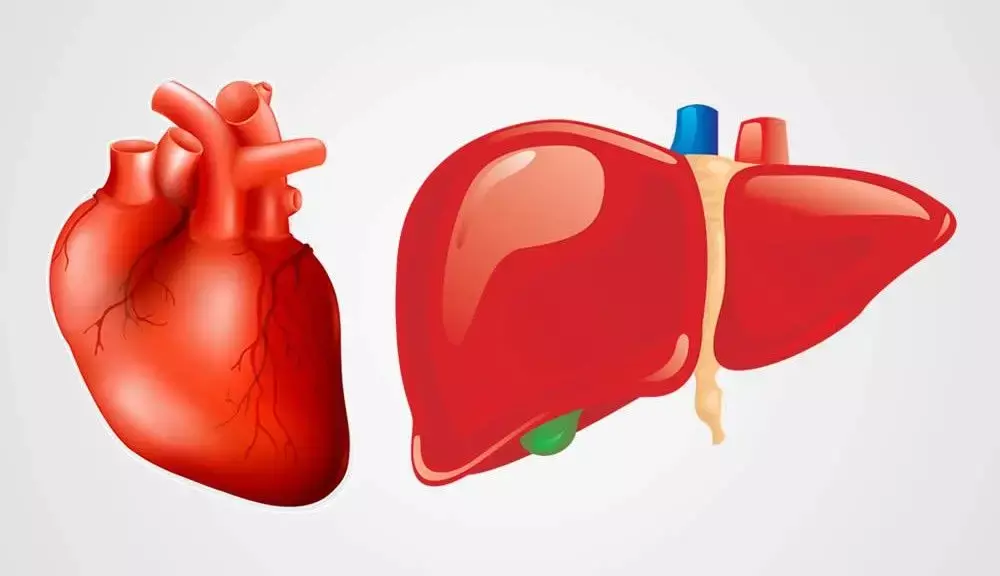- Home
- Medical news & Guidelines
- Anesthesiology
- Cardiology and CTVS
- Critical Care
- Dentistry
- Dermatology
- Diabetes and Endocrinology
- ENT
- Gastroenterology
- Medicine
- Nephrology
- Neurology
- Obstretics-Gynaecology
- Oncology
- Ophthalmology
- Orthopaedics
- Pediatrics-Neonatology
- Psychiatry
- Pulmonology
- Radiology
- Surgery
- Urology
- Laboratory Medicine
- Diet
- Nursing
- Paramedical
- Physiotherapy
- Health news
- Fact Check
- Bone Health Fact Check
- Brain Health Fact Check
- Cancer Related Fact Check
- Child Care Fact Check
- Dental and oral health fact check
- Diabetes and metabolic health fact check
- Diet and Nutrition Fact Check
- Eye and ENT Care Fact Check
- Fitness fact check
- Gut health fact check
- Heart health fact check
- Kidney health fact check
- Medical education fact check
- Men's health fact check
- Respiratory fact check
- Skin and hair care fact check
- Vaccine and Immunization fact check
- Women's health fact check
- AYUSH
- State News
- Andaman and Nicobar Islands
- Andhra Pradesh
- Arunachal Pradesh
- Assam
- Bihar
- Chandigarh
- Chattisgarh
- Dadra and Nagar Haveli
- Daman and Diu
- Delhi
- Goa
- Gujarat
- Haryana
- Himachal Pradesh
- Jammu & Kashmir
- Jharkhand
- Karnataka
- Kerala
- Ladakh
- Lakshadweep
- Madhya Pradesh
- Maharashtra
- Manipur
- Meghalaya
- Mizoram
- Nagaland
- Odisha
- Puducherry
- Punjab
- Rajasthan
- Sikkim
- Tamil Nadu
- Telangana
- Tripura
- Uttar Pradesh
- Uttrakhand
- West Bengal
- Medical Education
- Industry
NAFLD may increase risk of fatal or non-fatal CVD events, finds Lance Study

NAFLD is associated with an increased long-term risk of fatal or non-fatal CVD events, suggests a study published in The Lancet: Gastroenterology and Hepatology.
Studies have reported a significant association between non-alcoholic fatty liver disease (NAFLD) and increased incidence of cardiovascular disease (CVD). However, the magnitude of the risk and whether this risk changes with the severity of NAFLD remains uncertain.
A group of researchers from Italy conducted a meta-analysis of observational studies to quantify the magnitude of the association between NAFLD and risk of incident CVD events.
The researchers systematically searched PubMed, Scopus, and Web of Science from database inception to July 1, 2021, to identify eligible observational studies examining the risk of incident CVD events amongst adult (age ≥18 years) individuals with and without NAFLD and in which NAFLD was diagnosed by imaging, International Classification of Diseases codes, or liver biopsy. The primary outcomes were CVD death, non-fatal CVD events, or both. Data from selected studies were extracted, and meta-analysis was performed using random-effects models to obtain summary hazard ratios (HRs) with 95% CIs. The quality of the evidence was assessed with the Cochrane risk of bias tool.
The results of the study are as follows:
· They identified 36 longitudinal studies with aggregate data on 5 802 226 middle-aged individuals and 99 668 incident cases of fatal and non-fatal CVD events over a median follow-up of 6·5 years.
· NAFLD was associated with a moderately increased risk of fatal or non-fatal CVD events.
· This risk markedly increased across the severity of NAFLD, especially the stage of fibrosis.
· All risks were independent of age, sex, adiposity measures, diabetes, and other common cardiometabolic risk factors. Sensitivity analyses did not modify these results.
Thus, the researchers concluded that NAFLD is associated with an increased long-term risk of fatal or non-fatal CVD events. CVD risk is further increased with more advanced liver disease, especially with higher fibrosis stage. These results provide evidence that NAFLD might be an independent risk factor for CVD morbidity and mortality.
Reference:
Non-alcoholic fatty liver disease and risk of fatal and non-fatal cardiovascular events: an updated systematic review and meta-analysis by Mantovani A et. al published in The Lancet: Gastroenterology and Hepatology
DOI: https://doi.org/10.1016/S2468-1253(21)00308-3
Dr. Shravani Dali has completed her BDS from Pravara institute of medical sciences, loni. Following which she extensively worked in the healthcare sector for 2+ years. She has been actively involved in writing blogs in field of health and wellness. Currently she is pursuing her Masters of public health-health administration from Tata institute of social sciences. She can be contacted at editorial@medicaldialogues.in.
Dr Kamal Kant Kohli-MBBS, DTCD- a chest specialist with more than 30 years of practice and a flair for writing clinical articles, Dr Kamal Kant Kohli joined Medical Dialogues as a Chief Editor of Medical News. Besides writing articles, as an editor, he proofreads and verifies all the medical content published on Medical Dialogues including those coming from journals, studies,medical conferences,guidelines etc. Email: drkohli@medicaldialogues.in. Contact no. 011-43720751


